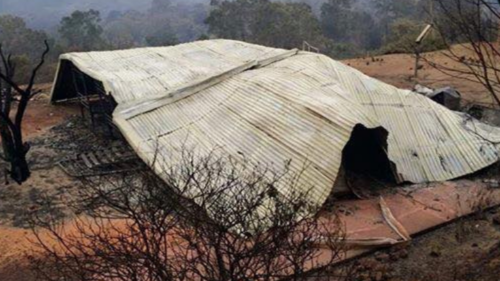Property
Cover for Adventist Church-owned property.
REQUEST COVER – Property Protection (Australia & New Zealand)
DownloadREQUEST COVER – Property Protection (Pacific Islands excluding PNG)
DownloadFACTSHEET – Pacific Island Property Protection Fund
DownloadConstruction Works Notification
Click to viewThe physical property of many Seventh-day Adventist Church organisations is critical to enabling mission as it accommodates almost all of our activities. It also often represents a large financial investment and commitment.
Not surprisingly then it is essential to have property cover for all property owned by the church as well as any property that the church is responsible for. RMS administers property cover for the Seventh-day Adventist Church in Australia, New Zealand and island territories of the Trans Pacific Union Mission and New Zealand Pacific Union Conference. In Papua New Guinea RMS assists the church with the purchase of property cover.
Damaged, destroyed, lost or stolen?
Notify RMS immediately of any loss or any event that might lead to a loss.
Once we know about the loss we can start to help you.
This is important as some insurance policies or covers have requirements to notify the insurer immediately, or a ‘limitation of time clause’ requiring notification within a certain time period.
A delay in reporting may result in your claim being declined, so don’t delay, report today!
The type of property that can generally be covered includes buildings, the contents kept securely in buildings (such as furniture, plant & equipment), fences, swimming pools, shade sails and other site improvements. All buildings, fences, swimming pools, shade sails and site improvements need to be separately listed on the property certificate issued by RMS. Each building should have a separate contents item on the property certificate but it is not necessary to list each individual piece of furniture or equipment. There are some types of property that are not covered by property cover such as:
- Property undergoing construction, alteration or addition. Special construction cover can be arranged – please contact RMS for further information.
- Property while in transit. Church organisations that transport property may wish to consider Marine Cargo cover.
- Portable items while being moved or while offsite. Extra Risks cover can provide additional protection for portable items.
- Motor vehicles and trailers of any description registered to travel on public roads. Church organisations in Australia and New Zealand may like to consider the Motor Vehicle cover administered by RMS for these vehicles. Unregistered vehicles and mobile plant also need special consideration – please contact RMS for further information.
- Locomotives, rolling stock, watercraft or aircraft. Please contact RMS if cover is needed for such items.
- Jewellery, furs, bullion, precious metals or stones.
- Livestock, animals, fish and birds.
- Standing timber, growing crops and pastures.
- Land
- Bridges, canals, roadways & tunnels, railway tracks, dams, reservoirs and their contents.
- Docks, wharves and piers.
- Mining property located beneath the ground.
- Empty premises scheduled for or in the process of demolition.
- Electronic data.
Property cover responds to unexpected loss or damage from a number of insurable events or perils. Common perils include fire, flood, storm, earthquake, vandalism, burglary, fusion and impact by vehicles and falling trees. Damage or loss resulting directly or indirectly from the following perils or events is not covered:
- Water from or action by the sea, tidal wave, high water.
- Erosion, subsidence, earth movement or collapse.
- War and associated perils.
- Theft of property in the open air (property not contained in a building).
- Breakdown, malfunction or failure.
- Radioactivity and contamination from nuclear waste.
- Consequential loss of any kind.
- Incorrect siting of buildings consequent upon error in design or specification, faulty workmanship or non-compliance with the necessary permits or rules of government or public authorities.
- Demolitions ordered by Government.
- Unexplained or inventory shortage, disappearance resulting from clerical or accounting errors, shortage in the supply or delivery of materials to or from a church organisation.
- Spontaneous combustion, spontaneous fermentation or heating or any process involving the direct application of heat.
- Inherent vice, pollution and contamination.
- Wear and tear, fading, scratching or marring, gradual deterioration or developing flaws, normal upkeep or making good.
- Error or omission in design, plan or specification or failure of design.
- Normal settling, shrinkage or expansion, creeping, heaving and vibration.
- Faulty materials or workmanship.
- Fraudulent or dishonest acts by employees.
- Terrorism (limited exceptions may apply).
We understand that this can sound complicated so if you have any questions or you need further information please do not hesitate to contact us. We can help.

 Does RMS Pay?
Does RMS Pay?
 Are Adventist Communities Future-Proof?
Are Adventist Communities Future-Proof?
 Why has the cost of property insurance skyrocketed?
Why has the cost of property insurance skyrocketed?
 How to Save Money on Insurance
How to Save Money on Insurance